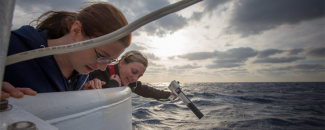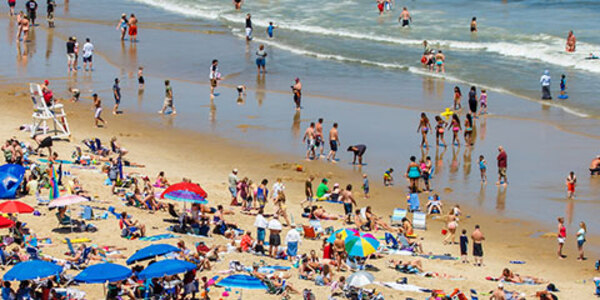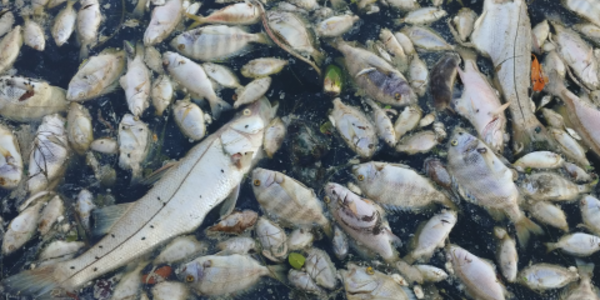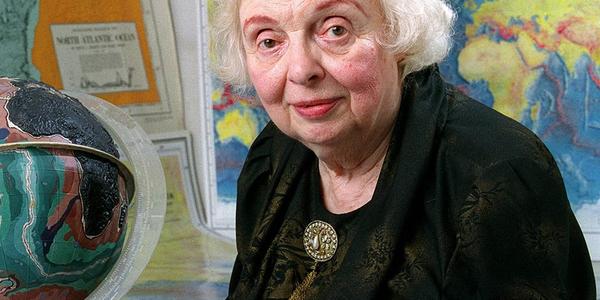
To centralize knowledge of the ocean, NOAA, NCEI, and research scientists support the World Ocean Database (WOD), which contains records about the ocean as far back as 1772. Researchers in the oceanography, meteorology, and climatology fields use the WOD and contribute to its ongoing development.
The goal of the WOD is to make the most complete set of historical ocean profile data possible in digital form available to anyone without restriction. The data, archived by NCEI, maintains records of temperature, salinity, nutrients, plankton, pH, and oxygen data, as well as several other ocean variables.
WOD provides access to millions of uniformly formatted records, also called profiles, submitted by about 90 countries and continually updated. Each quarterly update includes additional historical and recent data. The WOD consists of periodic major releases with quarterly updates to those releases. The most recent major release was WOD2018, released in 2018.
Each profile provides a snapshot of oceanographic conditions at one time from one location. Combined with other available profiles over discrete time periods, a view of regional and global changes in the ocean can emerge.
The availability of our WOD is offered through a mirrored search system in cooperation with the International Oceanographic Data Exchange (IODE). It broadens access by providing a secondary entry point to the system and increases reliability by providing a backup.
Researchers and the WOD
Whether studying the relationship of the ocean to Earth, conducting fisheries research, or managing marine resources, scientists and managers depend on observations of the marine environment. The WOD contributes to many types of diverse research applications from data assimilation models to understanding foraging habits of marine mammals to studying fisheries ecology.
Researchers also look at the role of the ocean as part of Earth’s climate system to understand climate variability and change. The database can be used to determine changes in ocean heat and salt content, providing regional and global historical perspective. For example, a published study by NCEI researchers used these data to examine climate shifts in the North Atlantic.
Records of temperature and salinity are frequently used by scientists who conduct ocean studies. For instance, salinity measurements can be combined with temperature data to determine seawater density, which is a primary driving force for major ocean currents.
Additionally, WOD forms the basis for the World Ocean Atlas (WOA), global climatologies based on long-term averages. WOA is used to calculate the periodic Ocean Heat Content assessment in NCEI’s Global Climate Report.
WOD relies on data from institutional, national, and regional data centers as well as from individual scientists and scientific teams. In short, those who use the WOD also contribute to it. Oceanographers at NCEI’s Ocean Climate Laboratory scientifically quality-control all WOD profile data.
Ocean Data Instruments
A number of instruments and techniques can be used to gather data from the ocean.
-
CTD—a rosette of instruments to measure Conductivity, Temperature, and Depth
-
Moored buoys—anchored platforms at fixed locations
-
Drifting buoys—platforms subject to ocean currents
-
Profiling floats—platforms drifting at predetermined subsurface water levels
-
Plankton tows—nets or bottles that are cast from a ship
-
Undulating oceanographic recorders—instruments towed behind vessels
-
Gliders—low-powered autonomous underwater vehicles (AUVs)
-
Autonomous pinniped bathythermographs—instruments attached to elephant seals
-
Expendable Bathythermographs (XBT)—probe used once and dropped through water column with small wires to transmit temperature back to ship
Records of Capt. James Cook
The WOD contains records dating to the second of three voyages of notable British Naval explorer Capt. James Cook. Launched in 1772, the expedition led by Cook on the HMS Resolution circumnavigated the globe at an extreme southern latitude and became one of the first ships to cross the Antarctic Circle in January 1773. Naturalists and botanists on his voyages made observations and discoveries. Log books of weather and other scientific information from Cook’s voyages are kept in The National Archives at Kew, England.
Cook's charts of the southern Pacific Ocean from the 1772 trip were so accurate that they were used well into the 20th century. Cook received many accolades for his explorations during his life and posthumously, including the adoption of his ships’ names, Endeavor and Challenger, for U.S. space shuttles.




